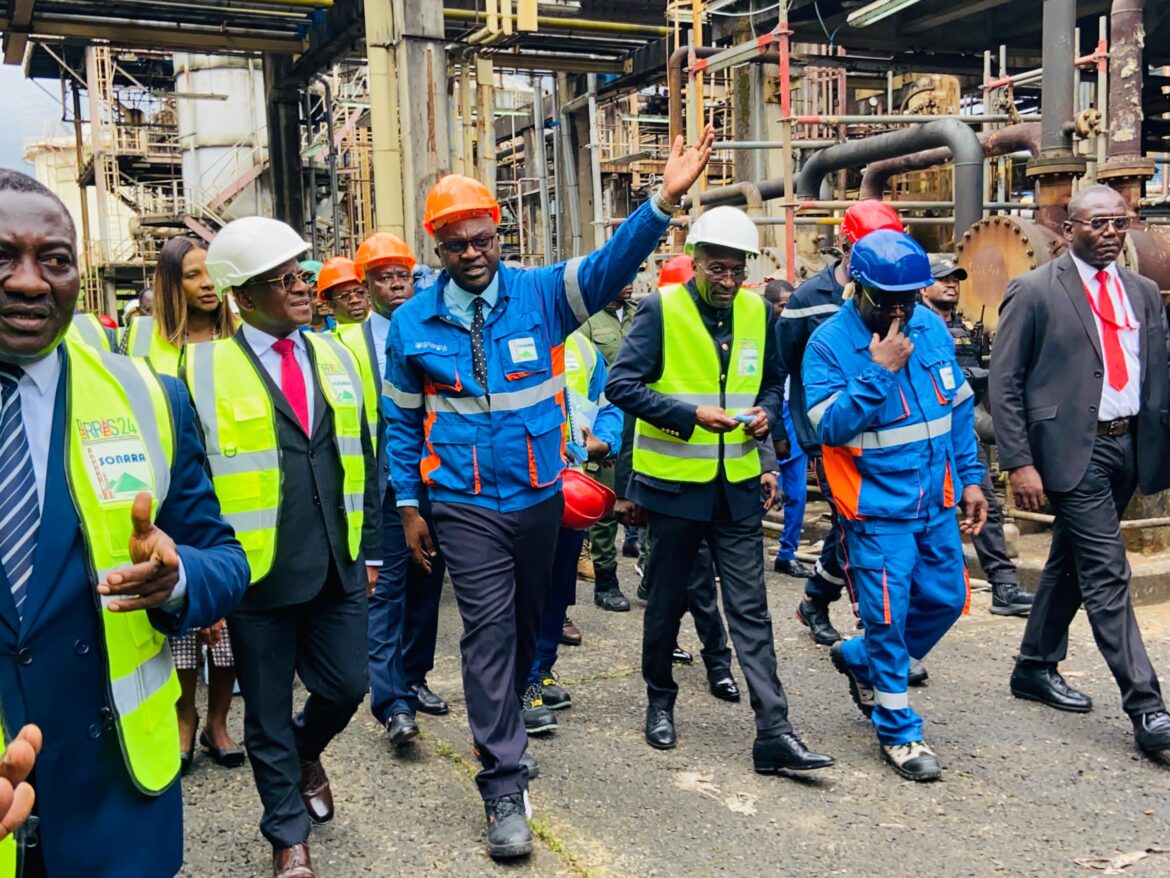PM Dion Ngute in a message of reassurance to the Société Nationale de Raffinage (SONARA) on Thursday, 9 October 2025, reaffirmed the support of President Paul Biya and the State to the national oil refinery.
The visit, which brought together government officials, SONARA management, workers, and local authorities, marked a renewed commitment to relaunching the refinery’s activities after more than six years of inactivity following a fire incident in 2019.
“I can, as Prime Minister, for as long as I am Prime Minister, give SONARA my total support,” the Head of Government declared, emphasising the strategic importance of the refinery to Cameroon’s energy security and economic sovereignty.
He described the visit as “comforting,” saying he was impressed with the level of progress recorded on the ground. “I have seen that the management and staff of SONARA are willing to pick up the baton,” he said, metaphorically describing the determination of the company’s personnel to restore refining operations.
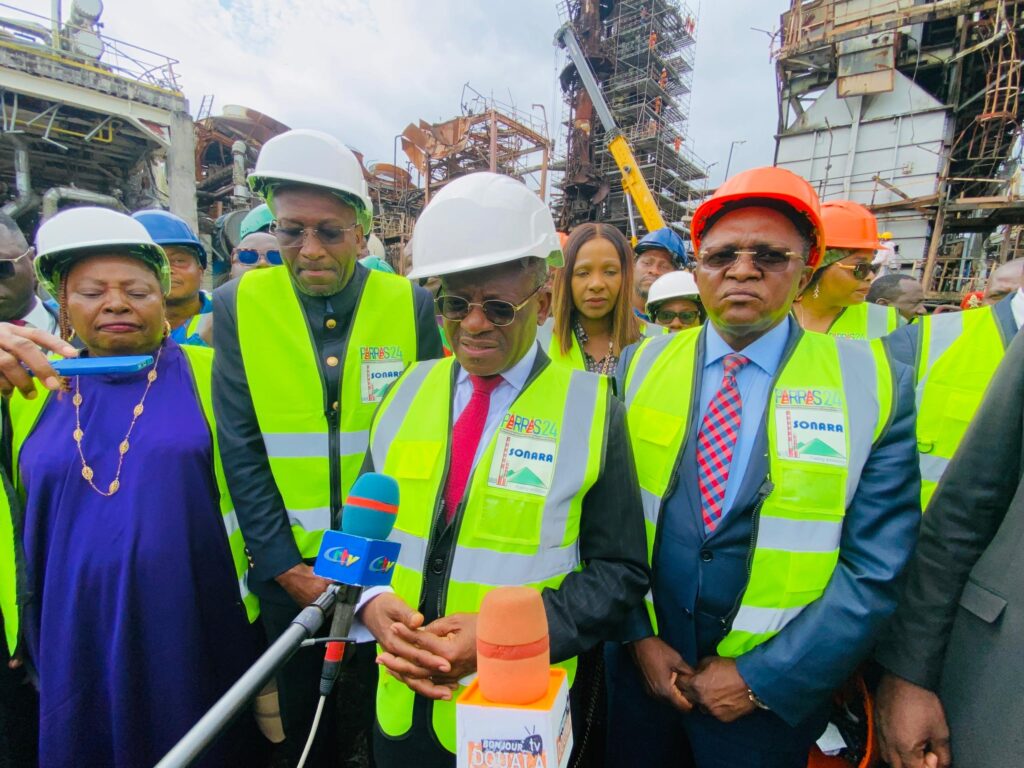
The Prime Minister was accompanied by a high-level delegation, including members of his Cabinet, special advisers, and senior officials. They were warmly received in Limbe by the General Manager, management, and workers of SONARA. The refinery’s staff and local population welcomed the delegation with banners and cheers, reflecting the symbolic weight of the visit at a time when Cameroon continues to import refined petroleum products at great cost to the national budget.
The visit comes at a decisive moment for SONARA, which has remained non-operational since the tragic incident on 31 May 2019. For six years, Cameroon has relied entirely on imported refined products, placing a significant financial burden on taxpayers. “This situation is not normal,” the Prime Minister stressed, noting that restarting the refinery is a matter of economic urgency. “It has been six years since the incident, and we are still not refining a single litre of oil. We should have done this a long time ago.”
He reiterated that the State’s backing has kept SONARA alive despite the challenges, including support to maintain the company’s creditworthiness on the money market. “The state is behind SONARA, and that is why you can continue to go to the money market and receive money from the banks, because they know that the state will stand behind SONARA in a time of loss,” he stated.
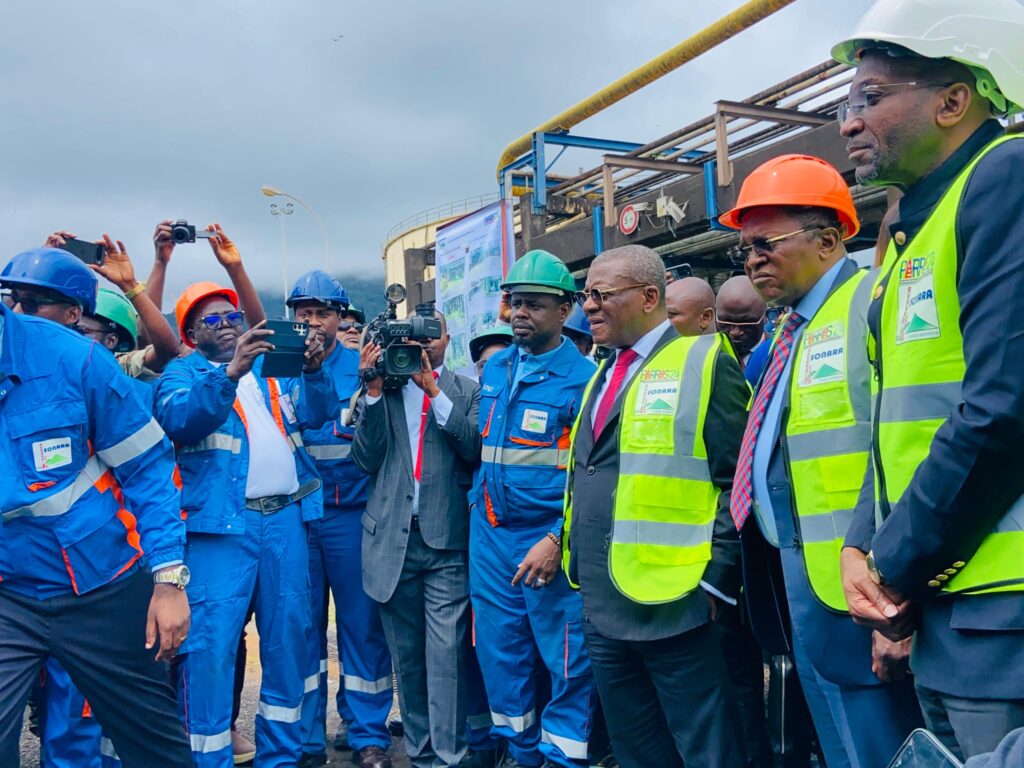
The Prime Minister, Chief Dr. Dion Ngute, also pointed to the risks of relying on external suppliers. “When you do not control anything, you are at the beck and call of those people who supply. Sometimes they may create artificial shortages to push prices up, and the taxpayer ends up paying the price,” he said.
Welcoming the Prime Minister, the General Manager of SONARA expressed the company’s gratitude to the Head of State and government for their continued support. He highlighted that the visit was not only symbolic but also a major boost to the refinery’s recovery plan.
“I want to tell you how proud and honoured we are to receive you today, despite your particularly busy schedule during this presidential campaign period,” the GM said. “Your presence at SONARA comforts and reassures us of the strength and consistency of the commitment His Excellency President Paul Biya has shown toward this investment project.”
Furthermore, the General Manager of SONARA, El Hadj Bako Harouna, recalled that the main mission assigned to him upon taking office was the reconstruction and rehabilitation of the refinery. He outlined the acceleration plan approved by the Board of Directors on 13 August 2025—the PARAS24 project, aimed at restarting refining activities within 24 months.
This strategic plan draws on technical assessments by EQIUM, a French engineering firm, which confirmed that around 80% of the damaged installations can be rehabilitated.
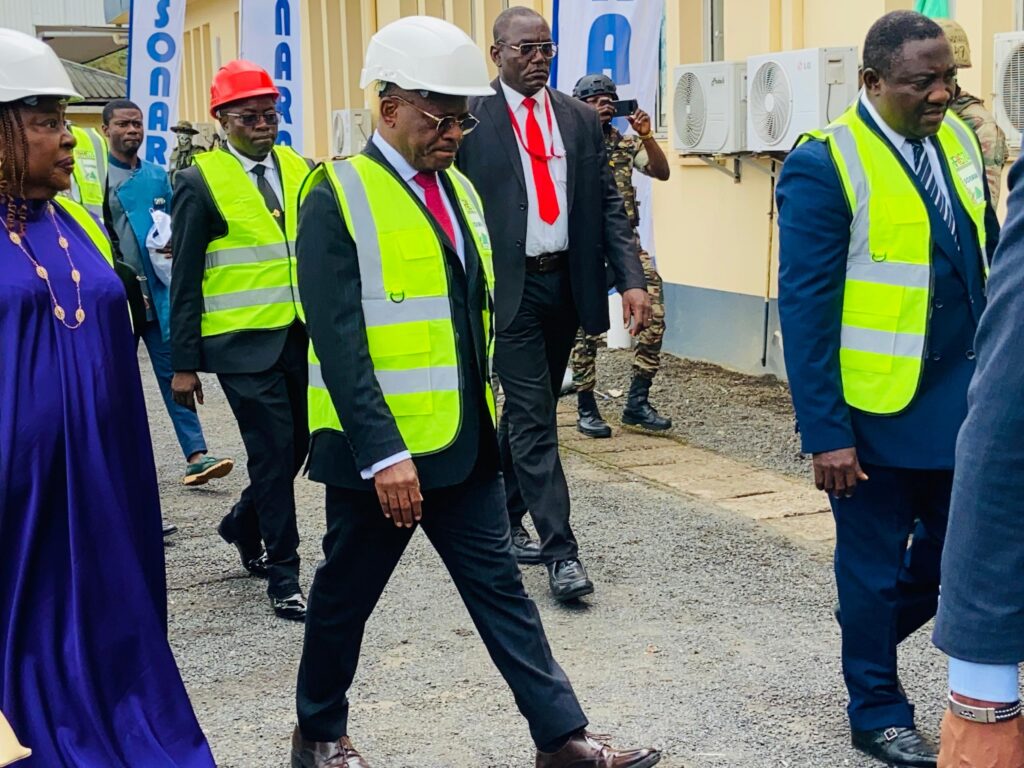
“PARAS24 represents a key strategic initiative designed to revive our refining activity by 2027 to address the crucial economic, social, and energy challenges facing our South West Region, Cameroon, and Central Africa as a whole,” he explained.
The General Manager also noted that several potential financial partners have expressed interest in supporting the project, with negotiations underway. “We have the conviction that, with the help of God and the participation of all, we will rise to this great challenge,” he declared, drawing applause from the workers and guests.
Earlier in the day, the project team made a technical presentation to the Prime Minister, detailing the progress of site cleaning and equipment inspection.
According to the coordinator, the housekeeping phase has been completed, and a comprehensive inspection programme is ongoing. “We have 441 support sheets in our database to ensure that every piece of equipment is tracked,” he explained. Some equipment has been deemed recoverable, others scheduled for detailed inspection, and procurement plans for critical components are already in motion.
The coordinator added that by November, SONARA plans to begin ordering major equipment in preparation for the installation phase following the end of the preparatory phase. This timeline aligns with the goal of restarting refining activities within 24 months.
A Boost to Worker Morale
The Prime Minister’s visit significantly lifted the morale of SONARA’s workers, who have endured six years of uncertainty but remained committed to the company. “I am very happy because the Prime Minister has seen what we are doing here at SONARA,” the General Manager said in an interview. “He congratulated me and all of my staff. By the grace of God, in about 24 months, all Cameroonians and the sub-region will be proud of us.”
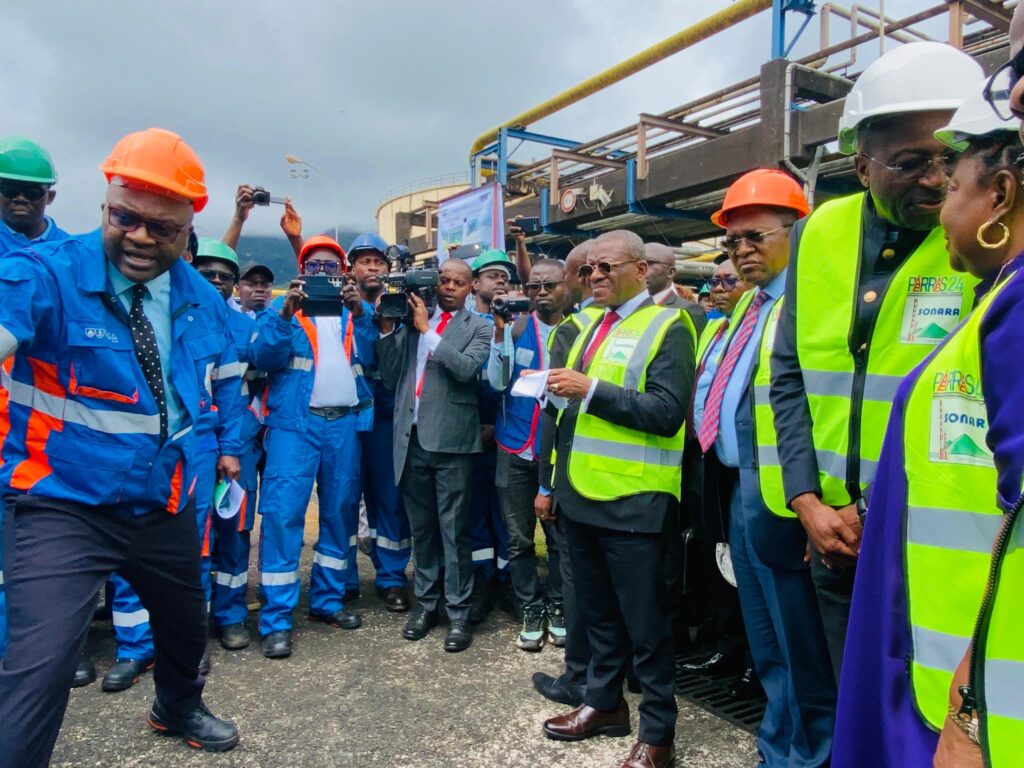
The project coordinator also expressed gratitude to the Head of State for ensuring job security during the refinery’s downtime. “Many feared they would lose their jobs, but for the past six years, we have remained here, and today we are comforted by the Prime Minister’s message,” he stressed.
SONARA: A National Priority
The rehabilitation of SONARA is seen as a matter of national priority, given its central role in Cameroon’s energy security. The refinery was originally designed to produce for the national market and neighbouring countries, but since 2019, the country has depended entirely on imported refined products.
With the government’s renewed backing and SONARA’s ambitious PARAS24 plan, there is growing optimism that the refinery will return to production—reducing import costs, strengthening energy independence, and stimulating economic activity.

